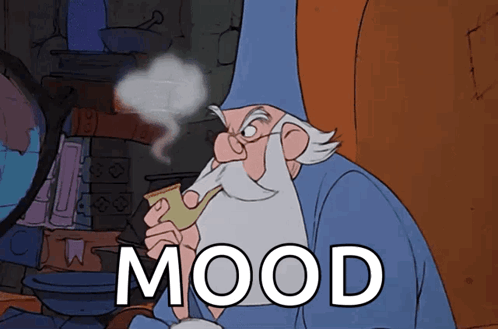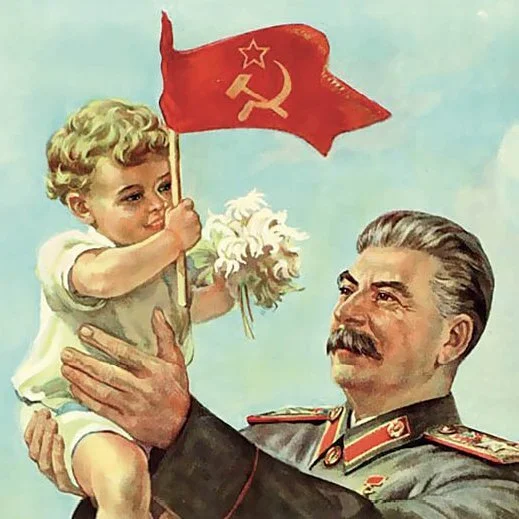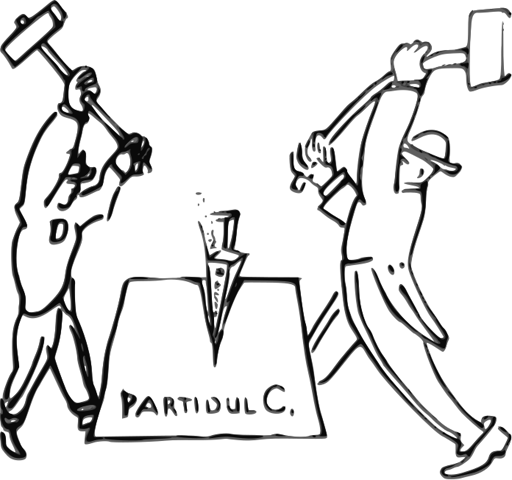Bill Watterson radicalized the youth, I should know, these were the only books I would read.
RedWizard [he/him, comrade/them]
- 375 Posts
- 2.19K Comments
Under capitalism there is endless innovation, it is a constantly evolving material continuum where all forms and functions exist in infinite combination, such that all manor of objects exist for even the most esoteric desires. In this endless realm of possibility a lay person may see only two recliners, while the ever scheming mind of the capitalist sees a new and alluring product. In the grand tradition of the Native Americans before him, the capitalist leaves no peace of the "animal" unused, gluing two underperforming reclining chairs together in a fever pitched moment of true innovative expression, to the wonder and amazement of droves of consumers. A feat yet to be accomplished in the desolate streets of Moscow.
Nothing would please me more then to be in the tag line rotation. Submitting it to !bestofhexbear@hexbear.net myself would be presumptuous I think.
That's dads seat. Don't mess with it.
Lol comrade I mod the parenting common, I know all to well.
Patriarchy manifest as home decor. Its social relations manifest in the realm of the real to reinforce it's rules through luxurious relaxation. The "we sleep in separate beds and it saved our marriage" of "love seats". There is a deep irony here that love seat is the form designation given to this ritual torture device.
This is exactly it. People who watch the local news at five and the evening news at six. People who only buy an Xbox for FIFA. People who have kids but can't remember their birthdays. People who have no passions about anything.
This is for those John and Kate + 8 "families".
If your the kind of guy who fucks in a car, you can't afford these couches, nor would you want to, far better couches for fucking on. This couch was designed by sexless foot ball watchers. They were designed for kings of queens. For Raymonds who everyone loves. There is no big bang theory in this house. Just desperate house wives living on love island, an ocean and two cup holders between them and their spouse.
It is the devils bargain. You only get this level of comfort by betting physically separated from your partner. Innovation in isolation.
I'm convinced you only get this kind of innovation through decades of neglect. Lazy boy is in the business of selling you chairs that make you feel like you're back in the womb.
They are very comfy. They have to be to fill the void left by absence of love in your fifty year marriage.

 ·1 day ago
·1 day agoLike deli counter mayonnaise!
Growth hacking just sounds gross.
 ·2 days ago
·2 days agoChapter 7 was real refreshing. This I think is what I was expecting early on but now I see the necessity in the previous chapters, even if I thought I was familiar with the subject. You need all that context to truly imagine the alternative. The notions of "selfhood" near the end resonated with me. Its something I've thought before but articulated far better then I could have. A more communal, more relational form of being.
I'm excited to keep reading, I feel I need to do more reflecting on this chapter, but it left me feeling optimistic. Mainly, as a father, knowing that deepening my understanding and being able to articulate and demonstrate an alternative will untimely benefit my kids.
 ·2 days ago
·2 days agoI haven't finished chapter 7 yet but chapter 6 really shows just how deeply connected the capitalist economic system is to patriarchy. It makes me want to finally read Caliban and the Witch. From the intro of that book we get the broad picture that primitive accumulation was in fact the process of domesticating women. Removing them from their established roles in society, stripping away their bodily autonomy, substituting men in their place as healers, and ultimately presenting them as the bargaining chip to the men enticed to work in the factories. It shows that this process is on going, not just one of the past. That capitalist markets perform this kind of violence against women even today.
I also want to read The Hidden Injuries of Class, which also touches on the way the capitalist system instills in men this idea of personal failure instead of systemic failure. Its author notes that:
This struggle was not only that they were trying to make sense of a complex society; a thread running through many of our interviews was the conviction that people should take responsibility for how they were situated in society. That is, being “lower down” did not just happen to them, it was internalized as who they were. These struggles with feelings of not being good enough, of personally failing, took place in an America that promised that everyone could rise if they made the most of themselves. “You are your own maker” the Renaissance philosopher Pico della Mirandola declared. Workers in Boston knew this was factually untrue but felt, personally, it was true.
Injuries to one’s sense of self-worth produce anger and resentment. For these White workers, Blacks who seemed to muscle in on their jobs and communities, and to capture the attention and sympathy of elites, were an obvious symbolic target, outside themselves, explaining why White workers were not doing well. But, in fact, matters were more complicated. Individual Black workers and neighbors were exempted from this scapegoating, and in the end people reverted to the fear that they had taken wrong turns or not made the most of themselves, rather than that their paths had been blocked by others. The very fact that some institutions were strong—stable corporations, strong unions—reinforced the sentiment that their fate at work was a matter of their own doing.
That anger and resentment is also talked about in Chapter 6, and we can see where the outlet for those feelings ultimately lay throughout the earlier chapters, it lay with the family. I think we can see the causality of these ideas today. Now more then ever young people are bombarded with this idea that you too can be independently wealthy. When the reality is, you'll just be caught up in this years rounds of layoffs and left economically abandoned. Your not going to make the next big app, you won't be the next Mr. Beast. There isn't enough attention for any of that. Young men are abandoning work and school altogether at very high rates.
There is a massive vacuum being created by young men seeking explanations for why their lives have turned out this way. Patriarchy stands ready to fill that void, as it always has.

 ·2 days ago
·2 days agoSo how do you get the semen out of the tree?

 ·3 days ago
·3 days agoI love venture brothers too, so from me, high praise! I just like how they take it seriously while being weird and funny. Scrooge is called an "Adventure Capitalist" in the show, and he sustains his wealth through doing adventures and being a miser. He is also impossibly old, and its justified in world because he has been in contact with so many ancient and magical artifacts. It has some really great plots and arcs. The nephews are each their own unique person, with different goals, quirks, fears and hangups. The characters grow and evolve over the show, nothing is static. Plus, the kids love it!


















I also loved farside. I got into it because my middle school home room teacher one year had this as a poster on the wall of his classroom: